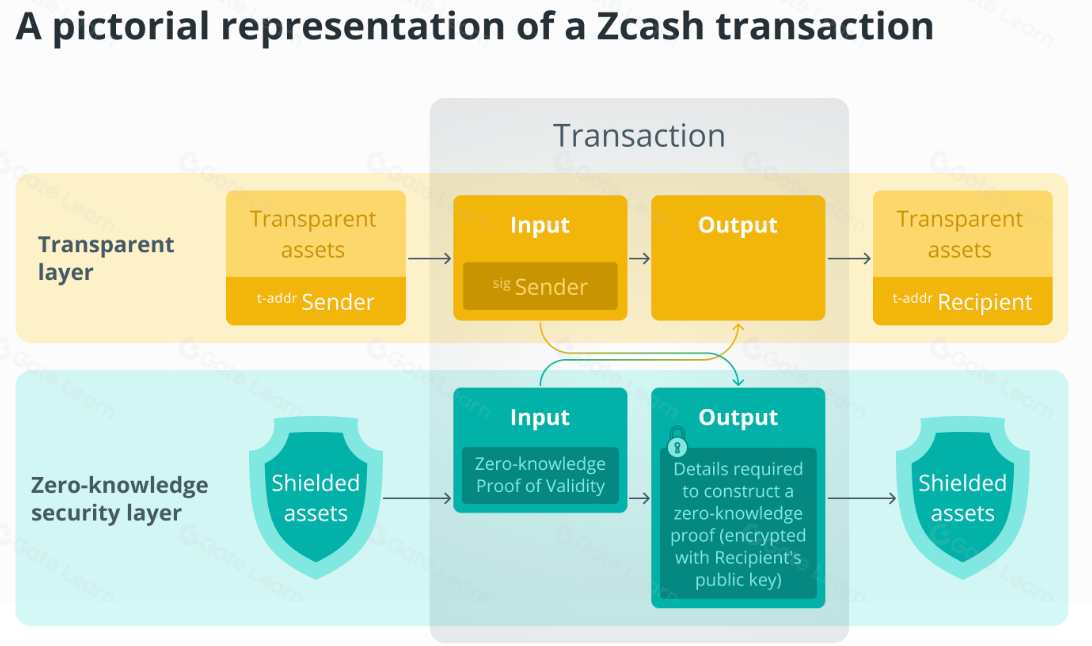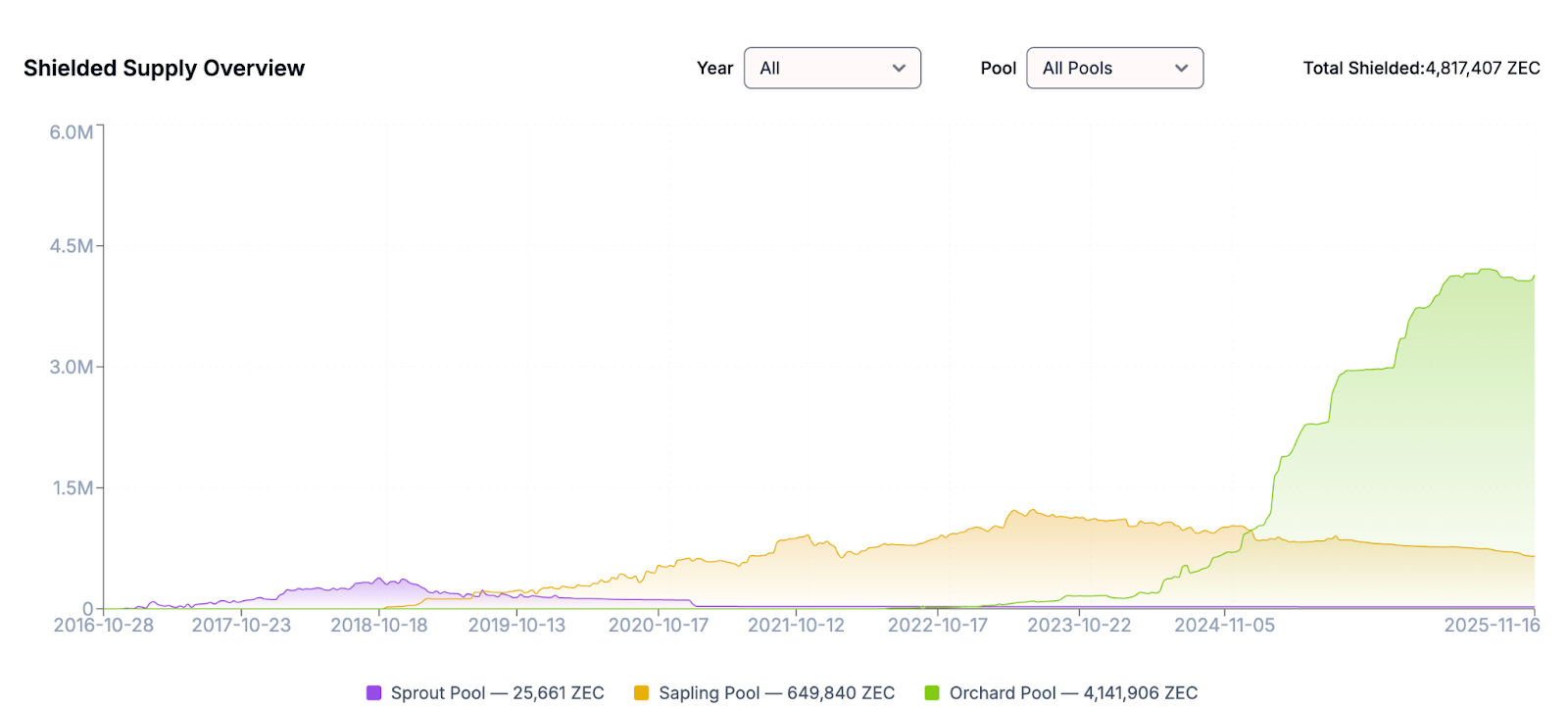Bitcoin, introduced in 2009, revolutionized finance by creating a decentralized digital currency that operates without intermediaries. However, it was designed with a focus on transparency rather than privacy with every transaction being tracked and recorded on a public blockchain, making details like amounts and addresses visible to anyone who examines the ledger. This results in pseudonymity, where users are identified by wallet addresses rather than real names. Zcash addresses this limitation by building on Bitcoin's codebase while incorporating advanced cryptography to enable optional private transactions, where sender, receiver, and amount can be hidden. In an era of widespread data collection, chain-analysis tools used by governments and firms, and increasing financial surveillance, the need for transactional privacy has become more pressing. Without it, users risk exposure of their financial histories, which could lead to profiling, targeted advertising, or even security threats. Zcash aims to provide a tool for those seeking to protect their financial data in digital payments.
What Is Zcash? A Primer on the Privacy Coin
Zcash (ZEC) is a decentralized cryptocurrency that forked from Bitcoin in 2016, maintaining similar properties such as a fixed supply of 21 million coins and proof-of-work consensus, but adding optional privacy through cryptography. It allows users to transact on a blockchain while selectively concealing transaction details (1).
The project originated from academic proposals like Zerocoin and Zerocash, which explored ways to enhance privacy in cryptocurrencies. It was launched by the Electric Coin Company (ECC), with ongoing development supported by the Zcash Foundation (2). As of November 2025, NU6.1 is scheduled to activate on November 23, focusing on a new funding model and enhancements to privacy and interoperability (3). The Q4 2025 roadmap emphasizes improvements to the Zashi wallet, including faster transactions and better user interfaces.

At its core, Zcash uses two types of addresses: transparent "t-addresses," which function like Bitcoin addresses with public transactions, and shielded "z-addresses," which obscure details. Funds can move between these pools, allowing users flexibility.
As of late 2025, Zcash holds a market capitalization of around $11 billion, ranking it as the 12th largest cryptocurrency, with its price recently surging to over $700 amid increased interest in privacy features (4). The shielded pool has grown to 23-30% of the total supply, indicating rising adoption of private transactions, though overall usage remains below full potential. Development continues through ECC and the Zcash Foundation, with efforts on wallet usability and protocol efficiency (5).
How Zcash Achieves Privacy: The Power of Zero-Knowledge Proofs
Zcash's privacy relies on zk-SNARKs (Zero-Knowledge Succinct Non-Interactive Arguments of Knowledge), a form of zero-knowledge proof that allows one party to prove a statement is true without revealing any supporting information (6). In transactions, this means verifying that inputs equal outputs and that the sender owns the funds, all without disclosing addresses or amounts.
The model is optional: users can opt for fully shielded transactions (complete privacy), use view keys for partial disclosure (e.g., sharing with auditors), or stick to transparent transactions. This contrasts with Bitcoin, where all data is public and privacy depends on not reusing addresses or using mixers—methods vulnerable to advancing chain-analysis techniques.
Trade-offs include higher resource demands for shielded transactions, which require more computation and memory than transparent ones.

Zcash vs. Monero: Why Zero-Knowledge Proofs Offer Stronger Trustless Privacy
Zcash and Monero both prioritize privacy but differ in approach: Zcash offers it optionally, allowing users to choose based on needs, while Monero enforces it for all transactions.
Technologically, Monero employs obfuscation methods like ring signatures (mixing a user's transaction with decoys), stealth addresses (one-time recipient addresses), and RingCT (hiding amounts). Zcash, conversely, uses zero-knowledge proofs for direct cryptographic hiding without mixing (7).
Zero-knowledge proofs provide stronger trustless privacy because they offer information-theoretic security details are mathematically hidden, not just obscured by decoys. This eliminates dependence on a large, active anonymity set; Monero's privacy can weaken if the decoy pool is small or if statistical analysis improves over time (8). Zk-SNARKs remain secure even against powerful adversaries monitoring the network, as long as private keys are safe.

Practically, Zcash's flexibility supports selective disclosure for audits or compliance, aiding regulatory coexistence, while Monero's mandatory privacy has led to more exchange delistings. In 2025, Zcash has overtaken Monero in market capitalization, reflecting these differences amid growing privacy interest (9) .
Bitcoin established censorship-resistant money through its transparent ledger, but Zcash extends this by incorporating the privacy that Bitcoin's design inherently lacks. In a landscape of pervasive monitoring, Zcash's optional, cryptographically robust privacy offers a potential path forward, though it must navigate technical and regulatory hurdles.
References:
- Electric Coin Company. (2025). Zcash Protocol Specification.
- What is Zcash
- Zcash NU 6.1
- Zcash Breaks Into Top-20 Crypto List, Hits $600 for First Time Since 2018
- Electric Coin Roadmap
- ZKP & ZK-SNARKS What is a Proof?
- Monero vs Zcash Crypto Comparison
- Zcash Overtaking Monero Market Cap Points to Privacy-Coin Power Shift
- Zcash Overtaking Monero Market Cap Points to Privacy-Coin Power Shift
About Netcoins
Established in 2014 in Vancouver, British Columbia, Netcoins is a registered Restricted Dealer with the provincial securities commissions and a registered Money Services Business (MSB) with FINTRAC. The platform operates under BIGG Digital Assets Inc., a publicly traded company listed on the TSX Venture Exchange (TSXV: BIGG), and complies with applicable public company regulatory requirements.
The information provided in the blog posts on this platform is for educational purposes only. It is not intended to be financial advice or a recommendation to buy, sell, or hold any cryptocurrency. Always do your own research and consult with a professional financial advisor before making any investment decisions. Cryptocurrency investments carry a high degree of risk, including the risk of total loss. The blog posts on this platform are not investment advice and do not guarantee any returns. Any action you take based on the information on our platform is strictly at your own risk. The content of our blog posts reflects the authors’ opinions based on their personal experiences and research. However, the rapidly changing and volatile nature of the cryptocurrency market means that the information and opinions presented may quickly become outdated or irrelevant. Always verify the current state of the market before making any decisions.



.png)

.png)
.png)




